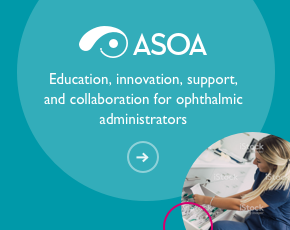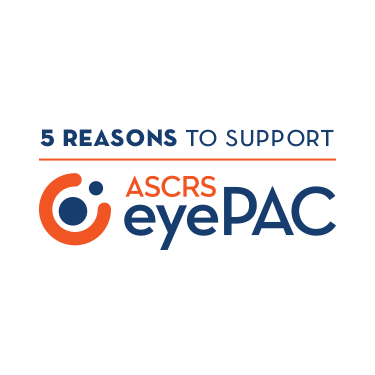
International Humanitarian Eyecare Collaboration
Education
The ASCRS Foundation seeks to address not just individual cases of cataract blindness, but rather to fight its root cause: the shortage of eye surgeons in the developing world. The solution to this issue is two-fold: to create world-class medical centers where efficient doctors can establish a presence; and secondly to focus on education—raising the local standards for both patient care and physician training. Through our partnership organizations, we’re working in multiple countries to effect a lasting change in the treatment of global cataract blindness.

Creating Partnerships with Impact
Equipment, including the lack of available operating microscopes, is one of the greatest barriers to expanding the availability of cataract surgery in Ethiopia.
Through a partnership with the Carl Zeiss Meditec and the Himalayan Cataract Project (HCP), the ASCRS Foundation’s Master Trainer Program arranges for equipment to be placed where it can deliver the greatest benefit.
The Foundation considers this model, involving a country-wide coordinated training program coupled with the proper equipment to support more rural outreach, to be the best approach for increasing the availability of high-volume surgical cataract care in the developing world. Together with our partners, we are improving physician training and support, and assisting with equipment placement in those areas where it can maximize patient benefit.
If you’re a surgeon interested in global ophthalmology, we encourage you to contact our international partners listed below about volunteer opportunities.
Master Trainers Program
In 2016, the ASCRS Foundation launched its Master Trainer Program, identifying Ethiopia’s six leading teaching ophthalmologists, and bringing them together through a consortium dedicated to improving the quality of surgical instruction, and ultimately the number of surgical ophthalmologists in Ethiopia.
The Master Trainers include Ethiopia’s five existing residency directors along with the Senior Surgeon at the ASCRS Foundation’s Sinskey Eye Institute. Together they oversee the clinical experience of nearly all Ethiopian residents, while also assisting and providing guidance concerning the eventual placement of those surgeons.
Too often, the advantages of surgical training in Ethiopia are greatly diminished due to a lack of available equipment. Additionally, those trained in residency often lose access to microscopes and other surgical equipment upon graduation because functional ophthalmic equipment is clustered in private-practice, premium clinics offering Western-style care to the country’s wealthy. This results in too many surgical ophthalmologists migrating to the affluent sections of the capital city where they treat a small patient population.
The ASCRS Foundation is working to keep more Ethiopian ophthalmologists in the parts of the country where they’re needed most. The focus is on high-volume, manual small-incision cataract surgery, which enables more patients to be effectively treated at lower-cost without the risks associated with phaco surgery. The Master Trainer Program provides a standardized curriculum to uniformly train Ethiopian residents in MSICS, and the Sinskey Eye Institute offers a busy, clinical setting where residents participate in surgical rotations aimed at improving their skills.
Our International Partners
To solve the problem of increasing cataract blindness worldwide, the ASCRS Foundation knows we need to address its root cause - the shortage of eye surgeons. The long-term solution will come from creating local ophthalmic centers of excellence and training, with the dual mission of raising the local standards for patient care and physician training. We cannot do this alone and are thankful for all of the global nonprofit partnerships that also support our mission.
ACE Global
ACE Global is an Ophthalmologist-led 501(c)(3) nonprofit organization dedicated to teaching and training the next generation of surgeons in low and middle-income countries with the aim of equipping them with the skills and capacity needed to establish productive practice environments that will work towards curing the blindness epidemic in their communities. With its initial focus in Honduras, ACE Global has exponentially expanded the training opportunities for young surgeons there by developing strong local partnerships and an international network of volunteer mentors and industry partners to establish a Digital Training Hub and Wet Lab, a Distance Surgical Mentorship program, as well as two Surgical Fellowships.
Countries We Support: Honduras, Mexico, Guatemala, El Salvador, Peru, Dominican Republic, Costa Rica.

HelpMeSee
HelpMeSee is a 501(c)(3) organization whose mission is to restore vision to people living with severe visual impairment and blindness due to cataract worldwide. HelpMeSee develops innovative surgical simulation products and platforms and works with partners to improve surgical training and enhance patient safety.
Countries We Support: United States, Mexico, Madagascar, France, India and China.

Himalayan Cataract Project
Himalayan Cataract Project (HCP) Cureblindness is working to eradicate avoidable blindness in under-resourced areas of the world by helping people retain and regain their sight. HCP’s approach to eye care is unique – it focuses on building local capacity, ensuring quality infrastructure and equipment are available, enabling quality patient care, and aiding effective prevention.
Since 1995, together with our supporters and partners, HCP has provided more than 1.4 million sight-restoring surgeries and screened more than 14.5 million people to provide care and basic treatments. We’ve trained more than 19,500 eye health professionals, and have established five eye hospitals.
Countries We Support: HCP Cureblindness has grown beyond the Himalayas to tackle needless blindness in over 23 countries in South Asia and sub-Saharan Africa with emphasis in Nepal, India, Bhutan, Ethiopia, and Ghana. Recent initiatives include countries like South Sudan, Tanzania, the Philippines, Eritrea and Somaliland.

Orbis International
Orbis is a leader in the fight against avoidable blindness and vision loss for over four decades, Orbis is an international nonprofit that trains, mentors, and inspires eye care professionals in places with the greatest need so they can save and restore vision in their communities. Orbis operates the world's only Flying Eye Hospital, a fully accredited ophthalmic teaching hospital on board an MD-10 aircraft; an award-winning telemedicine platform, Cybersight; and runs programs in Africa, Asia, the Caribbean, and Latin America.
Countries We Support: Orbis works primarily in low- and middle-income countries, home to nine out of ten people with vision loss. In 2022, Orbis operated programs in Bangladesh, China, Ethiopia, Ghana, India, Mongolia, Nepal, Peru, South Africa, Vietnam, and Zambia. Cybersight has users from nearly every country and region in the world.

SEE International
SEE International is a non-profit humanitarian organization that seeks to end preventable and treatable blindness by providing free eyecare services and sight-restoring surgeries to anyone in need of them, regardless of their background or ability to pay. We bring medical volunteers and partners together to improve access to high-quality eyecare all around the world. Together, we break the cycle of hardship that preventable blindness causes, making patients, families, and communities healthier and stronger.
Countries We Support: Angola, Belize, Bolivia, Burundi, Cambodia, Colombia, Costa Rica, Cote d’lviore, Democratic Republic of the Congo, Djibouti, Dominican Republic, Ecuador, El Salvador, Eswatini, Ethiopia, Fiji, Ghana, Grenada, Guatemala, Guinea, Guyana, Haiti, Honduras, India, Jamaica, Kenya, Laos, Liberia, Marshall Islands, Mexico, Micronesia, Mongolia, Morocco, Myanmar, Namibia, Nepal, Niger, Nigeria, Pakistan, Palau, Panama, Peru, Philippines, Rwanda, Sierra Leone, St. Vincent and Grenadines, Tajikistan, Tanzania, Togo, Trinidad and Tobego, Uganda, Vietnam, and Zambia.

Seva Foundation
Seva builds sustainable eye care systems worldwide by creating equitable access to eye care, strengthening the capacity of new and existing eye hospitals and systems, and collecting and learning from evidence. Since 1978, Seva has empowered under served communities and provided eye care services to more than 50 million people in 20+ countries around the world.
Countries We Support: Bangladesh, Benin, Burundi, Cambodia, China (Tibet), Dominican Republic, Guatemala, Haiti, India, Malawi, Mexico, Myanmar, Nepal, Nicaragua, Pakistan, Paraguay, Peru, Tanzania, Uganda, Ukraine, and United States.

Additional International Partners
Aravind
Central American Eye Clinics
Eye Corps
Friends of Vision
Global Sight Alliance
Moran Eye Institute
Ruth and Lowell Gess Eye Hospital
Vision Care
Supporting Education In Ethiopia
In April 2019, Barbara Erny, MD, the ASCRS Foundation’s Medical Liaison for International Programs returned to Ethiopia to see firsthand the students and programs directly affected by the Foundation’s support. Dr. Erny traveled to Addis Ababa, Ethiopia, to participate in the ICO Board Review Course. The three-day course was planned by the Himalayan Cataract Project with support from a generous Emory University grant and the ASCRS Foundation. When the results of the 2019 exams were released, Ethiopian residents posted the highest grades among all African participants.
The ASCRS Foundation is proud to work with NGO partners like the Himalayan Cataract Project, along with in-country ophthalmologists to provide quality training. Ethiopia now has five residency programs, providing training in every subspecialty, with the exception of neuro-ophthalmology. Several fellowships are scheduled to begin next year. Helping residents pass their board exams provides the foundation for sustainable, locally-sourced eye care. The ASCRS Foundation has provided board review courses each year since with continued excellent results.

Haitian Ophthalmology Initiative
Working in partnership with Haitian Vision Alliance and SEE International, the Foundation is supporting the Haitian Ophthalmology Initiative. In a country of approximately 13 million people, it is estimated only 13 ophthalmologists currently perform cataract surgery. This has resulted in a backlog of over 100,000 patients, many under the age of 22. The focus of this program is to develop a well-structured, in-country residency program train future surgical ophthalmologists.

About the Foundation Financials & Disclosures
The ASCRS Foundation supports physician education and provides humanitarian cataract surgery in the United States and developing countries. Through its programs and partnerships, the Foundation works to maximize the benefits of modern ophthalmology and to treat thousands of patients in need each year. The ASCRS Foundation is a 501(c)(3) organization. EIN: 23-7388748.



